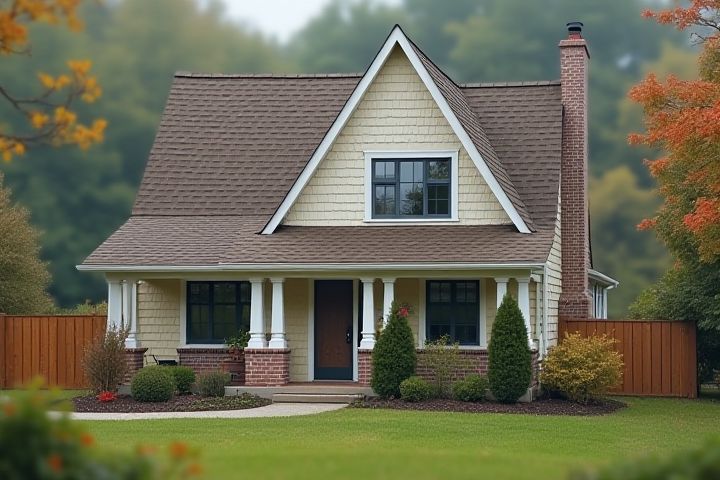
House zoning laws are primarily regulated by local government bodies, including city and county planning departments. These organizations are responsible for creating zoning ordinances that dictate land use, building height, density, and the types of activities permitted in specific areas. Community input often shapes these regulations through public hearings and planning commissions. State governments may also establish overarching zoning guidelines that local authorities must follow, ensuring compliance with broader environmental and developmental standards. If you are interested in a specific area, checking your local zoning board or municipal website can provide detailed information on current zoning laws and regulations.
Who Regulates House Zoning Laws
Local Government
Local governments, primarily through their planning and zoning departments, regulate house zoning laws. These departments establish zoning ordinances that dictate land use, including residential, commercial, and industrial designations. You can typically find these regulations outlined in municipal codes, which detail specific requirements such as property setbacks, building heights, and permitted activities. The decision-making process may involve public hearings and input from community members to ensure that the zoning laws reflect the needs and desires of local residents.
City Council
City councils are the primary regulators of house zoning laws, establishing guidelines for land use and development within municipalities. They assess community needs, environmental concerns, and economic development when creating zoning ordinances, which dictate how properties can be used, such as residential, commercial, or industrial purposes. You can participate in public hearings and city meetings to voice your opinions or concerns about proposed zoning changes that may impact your neighborhood. The decisions made by city councils can significantly influence property values and local infrastructure, shaping the overall character of the community.
Planning Commission
The Planning Commission is essential in regulating house zoning laws, ensuring that land use aligns with community development objectives. This body typically consists of appointed members who examine proposals, creating a framework that governs residential, commercial, and industrial zones. In many municipalities, the Planning Commission holds public hearings, allowing residents to voice concerns and influence decisions affecting their neighborhoods. By reviewing site plans and recommending amendments, the Commission plays a pivotal role in shaping sustainable urban growth, often impacting property values and community character.
Zoning Board
Zoning laws are regulated at the municipal level, primarily by the Zoning Board of Appeals (ZBA). This board consists of appointed members who review and approve changes or exceptions to existing zoning regulations, ensuring that developments meet local community standards. The ZBA typically holds public hearings, allowing community members to voice their opinions on zoning requests, which can significantly influence decisions. Understanding how the Zoning Board operates is essential for property owners and developers seeking to navigate zoning challenges effectively.
County Government
County governments primarily regulate house zoning laws, establishing the framework for land use within their jurisdictions. Each county develops a comprehensive plan that outlines zoning designations, including residential, commercial, and agricultural areas. Zoning ordinances dictate the allowable uses, structure heights, and density of developments, ensuring that land use aligns with community standards and growth management objectives. Your local county zoning board plays a crucial role in reviewing zoning applications and amendments, maintaining a balance between development and community welfare.
Municipalities
Municipalities are the primary entities responsible for regulating house zoning laws within their jurisdictions. Each municipality establishes zoning ordinances that dictate land use, including residential, commercial, and industrial classifications. These regulations often include specific guidelines on property setbacks, building heights, and density limits, influencing community structure and development. To ensure compliance with these laws, municipalities typically rely on planning boards and local governance, involving public input during zoning hearings and revisions.
Townships
Township zoning laws are primarily regulated by local government authorities, which include township boards and planning commissions. These entities establish zoning ordinances that dictate land use, development density, and property setbacks, ensuring that local communities grow in an organized manner. Public hearings often provide residents with the opportunity to voice their opinions and influence zoning decisions. State laws may also dictate zoning processes and guidelines, ensuring consistency across different townships while allowing for local adaptation.
State Government
State governments play a crucial role in regulating house zoning laws, which determine land use and development restrictions within municipalities. Each state establishes its own zoning framework, allowing local governments to create specific regulations that promote public health, safety, and welfare. You can find variations in zoning classifications such as residential, commercial, and industrial, which dictate the types of structures allowed in particular areas. Furthermore, state statutes often provide oversight mechanisms to ensure that local zoning ordinances comply with broader state policies and land use objectives.
Regional Planning Agencies
Regional Planning Agencies (RPAs) play a critical role in regulating house zoning laws, ensuring compliance with state and local guidelines. These agencies assess community needs and land use patterns, often providing the framework for sustainable development and smart growth. Typically, RPAs collaborate with local governments to create comprehensive plans that guide zoning decisions, impacting areas such as housing density, commercial use, and environmental protection. For residents, understanding the influence of RPAs can help in navigating local zoning regulations and participating in community planning initiatives.
Public Hearings
Local government agencies, often guided by zoning boards or planning commissions, regulate house zoning laws, ensuring compliance with community standards and land use objectives. Public hearings serve as a critical component of this process, allowing residents to voice concerns, support, or objections regarding proposed zoning changes. During these hearings, officials assess the implications of zoning adjustments on the neighborhood's character, development, and infrastructure. Your participation in public hearings can significantly influence decisions on zoning regulations that affect your property and community.
